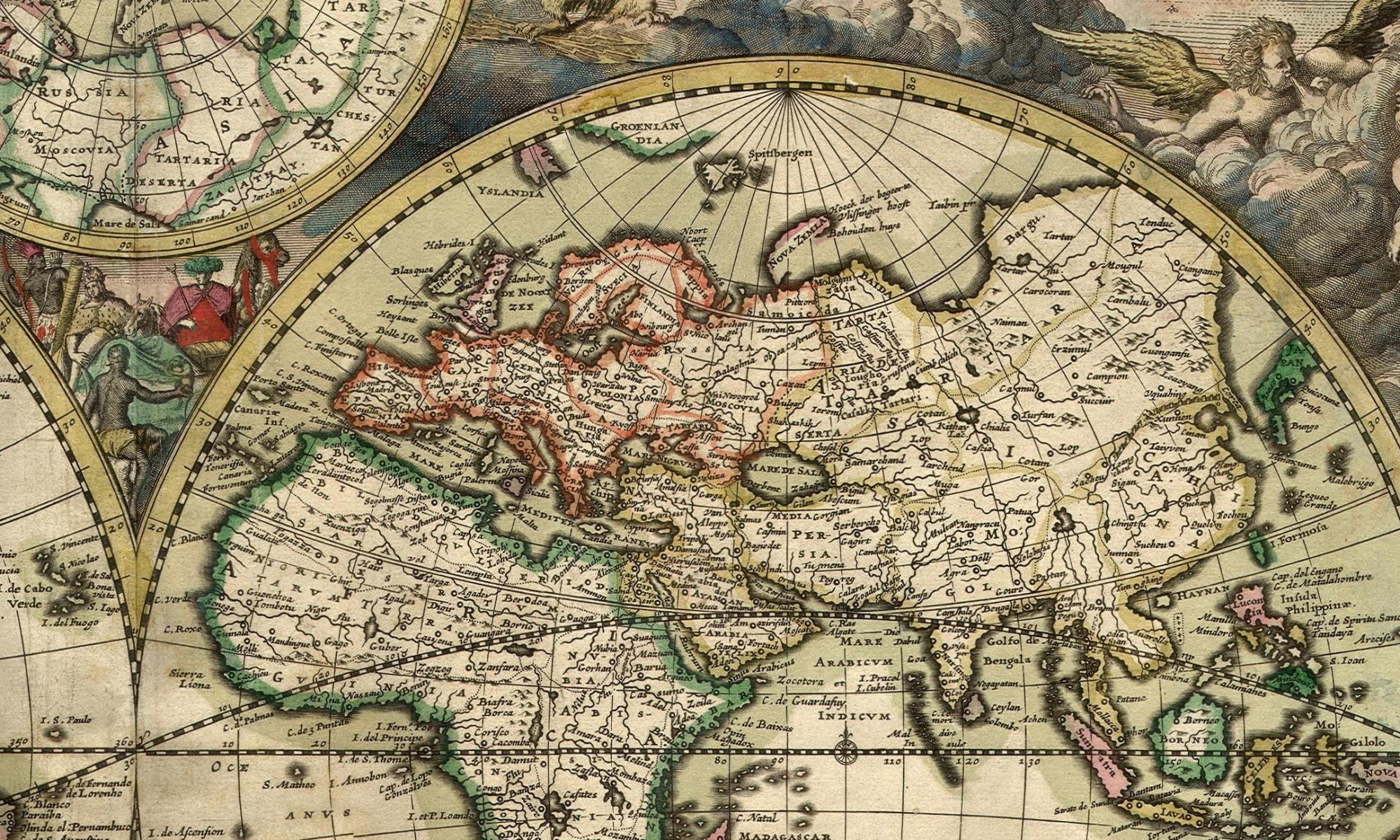LSE Ideas interviewed Luc-Andre Brunet, Lecturer in Twentieth Century European History, on his new book, Forging Europe: Industrial Organisation in France, 1940–1952. Forging Europe is a detailed and original look at the radical reorganisation of French heavy industry in the turbulent period between the establishment of the Vichy regime in 1940 and the creation of the European Coal and Steel Community (ECSC), the forerunner to the European Union, in 1952. By studying institutions ranging from Vichy’s Organisation Committees to Jean Monnet’s Commissariat Général du Plan (CGP), Luc-André Brunet challenges existing narratives and reveals significant continuities from Vichy to post-war initiatives such as the Monnet Plan and the ECSC. Based on extensive multi-archival research, this book sheds important new light on economic collaboration and resistance in Vichy, the post-war revival of the French economy, and the origins of European integration.
Donna Loftus’s article in Social History
Donna Loftus, Senior Lecturer in History, has published an article entitled “Time, History and the making of the industrial middle class: the story of Samuel Smith” in Social History. The article argues that anxieties about the decline of industry and the future of liberalism at the end of the nineteenth century fuelled a small explosion in life writing and popular history. Accounts combined anecdotes about everyday life and reminiscences of the great civic age in a network of texts that attempted to recreate the associational life of the industrial middle class and present it as the foundation of national progress. However, slips in time between retrospection, nostalgia, memory and history reveal the complexity of late-Victorian anti-industrialism and the tensions in liberalism between a political culture that was inclusive and open and a social world that was not. The article combines a deep reading of the autobiography of the cotton magnate and liberal politician Samuel Smith alongside popular local history and collective biography. In so doing it shows how life stories were consciously composed as history, intent on shaping the provincial middle class as a historical force at a time of uncertainty about the future of industry and of liberalism.
Paul Lawrence’s article in The British Journal of Criminology
Paul Lawrence, Asa Briggs Professor of History, has recently published an article entitled “The Vagrancy Act (1824) and the Persistence of Pre-emptive Policing in England since 1750” in The British Journal of Criminology (May 2017). This article argues that research into preventive and pre-emptive crime control in the United Kingdom has marginalized the historical persistence of the power to arrest and convict on justified suspicion of intent. It traces the genesis of this power in statute law (particularly the Vagrancy Act of 1824) and demonstrates its consistent use in the nineteenth and twentieth centuries. Overall, the article argues that ‘pre-emptive’ arrest and conviction on suspicion of intent have been a significant component of UK police powers since the later eighteenth century, and seeks to demonstrate the value of historical criminology in problematizing contemporary debates.
John Slight awarded Trevor Reese Memorial Prize
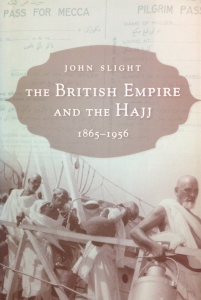
The Institute of Commonwealth Studies (ICWS) has awarded Dr John Slight the Trevor Reese Memorial Prize for his publication for his book ‘The British Empire and the Hajj’, which explores the interactions between imperialism and Islamic practice.
Established by the institute in 1979 the prize, awarded every three years, recognises the author of a piece of work that has made a wide-ranging, innovative and scholarly contribution in the field of Imperial and Commonwealth History. It is dedicated to Dr Trevor Reese, a distinguished scholar of Australian and Commonwealth history, who was Reader in Imperial Studies at ICWS until his death in 1976. He was the author of several leading works, and was both founder and first editor of the Journal of Imperial and Commonwealth History.
Professor Philip Murphy, the institute’s director, said: “The panel of judges has identified an extremely worthy recipient of this year’s Trevor Reese Memorial Prize in John Slight’s excellent book. It is a remarkably thorough and engaging piece of multi-archival scholarship, and a major contribution to our understanding of how the British Empire interacted with the Muslim world. I would like to offer my warmest congratulations to Dr Slight.”
Commenting on his award, Dr Slight said that “I am very honoured to receive this prize. The interactions between imperialism and Islamic practice form an important part of the imperial experience, which I explored in ‘The British Empire and the Hajj’, but is a phenomena that extends far beyond the case of Britain alone. I am extremely pleased that this particular historical story has been recognised by the Institute of Commonwealth Studies.”
Catherine Lee’s article in Women’s History Review
Catherine Lee, Honorary Associate, has recently published an article entitled ‘“Giddy Girls”, “Scandalous Statements” and a “Burst Bubble”: the war babies panic of 1914–1915’ in a special themed issue of Women’s History Review on ‘Representing, Remembering and Rewriting Women’s Histories of the First World War’ (online, print issue forthcoming early 2018). The article investigates the moral panic surrounding the alleged impending birth of ‘war babies’ to thousands of unmarried young women and girls, said to have been fathered by men recently departed for the Western Front in late 1914. The rumour ultimately proved to be largely unfounded – but not before it had attracted widespread press and public attention.
New Publication: Acid bath murderers and poison
Angela Sutton-Vane, a History Department PhD student, has published an article in The Conversation entitled ‘Acid bath murderers and poison: why dark tourism is important’. The article looks at the Met Police’s new exhibit in the Museum of London.
Neil Younger on Drama, politics, and news in the Earl of Sussex’s entertainment of Elizabeth I
Neil Younger has recently published an article on a previously unknown entertainment of Elizabeth I at New Hall in Essex, and the political and cultural contexts surrounding this event.
‘Drama, politics, and news in the Earl of Sussex’s entertainment of Elizabeth I at New Hall, 1579‘ appears in The Historical Journal, Volume 58, Issue 02, June 2015.
Listen to Neil talking about this research on BBC Radio 4’s ‘Making History’.
New Publication: Historic New Lanark
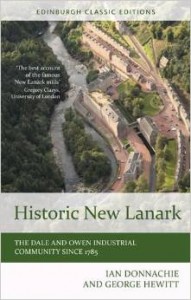 Edinburgh University Press has just brought out a new updated edition of Historic New Lanark by Ian Donnachie, Emeritus Professor of History at the Open University, and George Hewitt.
Edinburgh University Press has just brought out a new updated edition of Historic New Lanark by Ian Donnachie, Emeritus Professor of History at the Open University, and George Hewitt.
According to Gregory Claes, Professor of the History of Political Thought at Royal Holloway, London, this ‘admirably concise, readable and informative introduction … provides the best account of the famous New Lanark Mills’.
For further information, please click here to visit the publisher’s website.
New Publication: The making of the modern police
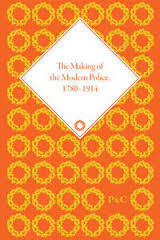
Pickering and Chatto have just published The Making of the Modern Police 1870-1914. These 6 volumes of source material cover the history of policing.
Four of the volumes were edited by Paul Lawrence and Rosalind Crone of the History deptartment and by Robert Morris and Janet Clark, two former OU History PhD students. For further information, see the publisher’s website.
Managing Heritage, Making Peace: History, Identity and Memory in Contemporary Kenya
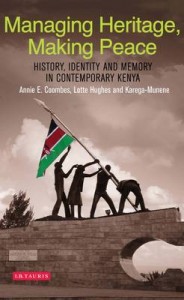 Lotte Hughes, Annie E Coombes and Karega-Munene have just published Managing Heritage, Making Peace: History, Identity and Memory in Contemporary Kenya (I.B. Tauris 2013). Kenya stands at a crossroads in its history and heritage, as the nation celebrates its fiftieth anniversary of independence from Britain in 2013.
Lotte Hughes, Annie E Coombes and Karega-Munene have just published Managing Heritage, Making Peace: History, Identity and Memory in Contemporary Kenya (I.B. Tauris 2013). Kenya stands at a crossroads in its history and heritage, as the nation celebrates its fiftieth anniversary of independence from Britain in 2013.
At this important juncture, what parts of its history, including the Mau Mau uprising, do citizens and state wish to remember and commemorate and what is best forgotten or occluded? What does heritage mean to ordinary Kenyans, and what role does it play in building nationhood and forging peace and reconciliation? Find out more about this book.
